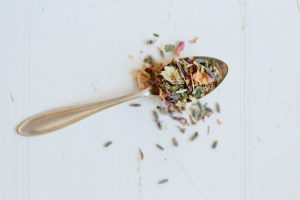The Naturopathic Co.

You're using an outdated browser. Please upgrade your browser to improve your experience.
Our skin craves nourishment from the inside out. Great skin requires the correct balance of nutrients from a balanced diet on a consistent basis.
It doesn’t mean that we can’t enjoy a treat every now and again, but it does mean that we need to minimise our intake of foods which are not beneficial for us, and boost foods that support the vibrant skin we want.
If we get the balance wrong, we start to notice changes in our skin – acne, rosacea, eczema, dullness, and dryness.
There are a variety of imbalances which can contribute to skin problems. Imbalances in gut bacteria (higher numbers of pathogenic bacteria vs beneficial bacteria), hormonal imbalances, sub-optimal liver function and detoxification, or any combination of these issues.
There are many things you can do to improve your skin’s appearance, and maintaining a lifestyle that supports healthy hormone regulation and detoxification is a really important first step.
This means ensuring your nutrient levels are adequate (and taking a good quality multivitamin if they are not), increasing intake of vegetables especially greens, maintaining a healthy weight, exercising daily, and drinking enough water.
Stress plays a big role in how your skin looks and feels. Setting off a cascade of stress hormones throws our reproductive hormones off, which can cause problems for our skin with cyclical acne.
Excess hormones also place a burden on our liver, which has trouble clearing the hormones, waste, and toxins from the body, so it starts coming out in our skin instead.
A balanced diet full of whole foods, high in fibre and antioxidants, healthy fats, and clean proteins will assist in regulating stress hormones and detoxifying.
For hormonal acne, it’s important to reduce androgen levels by minimising your intake of sugar and starchy foods which spike insulin levels. Refined sugars, processed foods, breads, cakes, biscuits, pastas, chips, sweets should all be minimised where possible, and replaced with healthier food choices and wholefoods.
For glowing skin, we should do our best to minimise sugar, unhealthy oils (stick to coconut oil and unheated olive oil), preservatives, colourings, additives, caffeine and alcohol.
Fibre: A diet rich in fibre protects us from inflammation, but also helps to clear waste from the body so that it won’t reveal itself in our skin.
We should aim for a good balance of soluble and insoluble fibre, as well as 5-7 serves of vegetables every day. Examples of soluble fibre foods are nuts, beans, peas, oats, lentils, citrus fruits, apples, and strawberries. Examples of insoluble fibre are whole grains, cereals, seeds, and the skin of fruit and vegetables.
Liver-friendly foods: Healthy detoxification and liver function gives beautiful, glowing skin. Foods which boost liver function are onions, garlic, berries, grapes, artichoke, citrus, green tea, and all cruciferous vegetables (broccoli, cauliflower, Brussel sprouts, kale, bok choy).
Antioxidants: Free radicals cause harmful oxidation resulting accelerated aging and dull skin, but antioxidants provide us with a protective effect.
The best way to ensure a high antioxidant intake is to regularly consume a rich source of colourful fruit and vegetables. If we eat a wide variety of colours, we ensure we are getting a variety of nutrients and antioxidants to support glowing skin.
Omega 3 fatty acids: Salmon and other fatty fish such as sardines, tuna, mackerel, are great sources of omega-3 fatty acids. We can also get good amounts of omega 3 fatty acids from flaxseeds, walnuts, and chia seeds.
These fatty acids have an anti-inflammatory effect on our skin. They introduce ‘good’ oils, making our skin feel soft and hydrated, and discourage our skin to over-produce oils that clog our pores. We can also take a good, clean quality fish oil supplement to boost our essential fatty acids.
Fermented foods: Our balance of bacteria is negatively impacted in our gut and on our skin when we eat things like processed foods, high starch foods, and sugar.
Ensuring regular intake of fermented foods, means we continually reintroduce beneficial bacteria to our gut and therefore keep the balance right. Try fermented foods such as kefir, sauerkraut, miso, pickled vegetables, and kimchi.
Water: Maintaining hydration is essential for great skin. You’ll be amazed how your skin glows when you boost your water intake. Aim for 30mL per kilo of body weight per day.
Yvette is a qualified Melbourne-based Naturopath and Nutritionist, MINDD Practitioner, member of the NHAA (Naturopaths and Herbalists Association of Australia), and CMA (Complementary Medicine Association). Yvette specialises in the treatment of conditions commonly affecting women and children, with a key interest in children’s digestive and neurological conditions, as well as women’s hormonal concerns, digestive issues, fatigue, anxiety, and skin concerns. Yvette consults from our clinic in South Yarra, Melbourne, as well as Australia-wide via skype/zoom/phone.
The Naturopathic Co. Melbourne Naturopath 2022
Comments are closed.